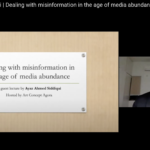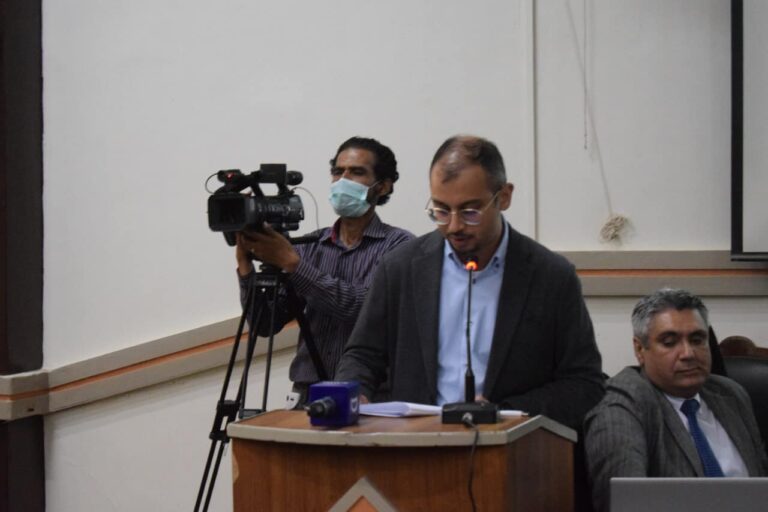The emergence of the Global South has become an increasingly popular colloquialism within the academic community. It refers to most of the countries of Africa, Central and Latin America and Asia as opposed to the Global North which makes up the developed part of North America, Europe and East Asia.
The term, traditionally synonymous with the third world now represents countries that have experienced rapid economic growth in the past three decades, even during times of recession. At present, if we consider an obvious indicator of growth – that South-South economic cooperation now exceeds South-North cooperation by $2.2 trillion i.e. over one quarter of global trade- and by UNDP 2013 estimates that 80% of the world’s middle class will be living in developing countries – it can be assured that the South will have a tremendous impact in reshaping international political and economic systems.
The launch of the New Development Bank (NDB) last month by Brazil, Russia, India, China and South Africa collectively known as the BRICS nations is one such impact. The move is being looked upon as a practical measure to counter shortcomings of existing world development institutions – specifically the World Bank and the IMF – which through their prejudice for the US and European national interests and harsh constitutionalities have always been a bone of contention for emerging economies.
But the bank is a small chapter in a wider debate surrounding shifts in the global balance of power. This shift is not simply the result of better policies on infrastructure development, research investment and trade; it marks a broader ideological evolution in the world’s understanding of such systems by learning from South-South direct intellectual and cultural dialogue which was tradtionally always contextualized through the West.
In a recent Time Magazine editorial Wall Street’s Values Are Strangling American Business, Rana Foroohar talks about how in highly globalized capitalistic markets, such as the US, the need to please the shareholders outweigh the needs of long term sustainable growth of companies. This result in markets influencing businesses more than vice versa; against what capitalist system originally sought to achieve. The financial crisis of 2007-2008 thus has increased the grasp of finance on corporate America.
Faroohar goes further by citing a McKinsey Global Institute report, that by 2025, 7 out of 10 largest global firms will be from emerging economies. Moreover, they will primarily be family owned!
Although the significance of the Global South gets lost in our World’s multipolar political rehtoric in the public sphere, the knowledge economy operates at a scientific level. Thus in conferences and lecture rooms, academics from the Global North are debating on poignant lessons that can be gleaned from researches based on South-South interactions.
For instance, Kanchan Chandra, Professor of Politics at NYU, taking Indian ethnic politics as a case study in her paper Ethnic Party and Democratic Stability, suggests a model that counters conventional wisdom that ethnic divisions destabilize democratic institutions. In fact she proposes ways in which certain dimensions of ethnicism in state institutions can enhance their efficacy for South Asian democracies.
Similarly, Hearns-Branaman, lecturer at National Institute of Development Administration in Bangkok, on defining the political economy of media of China writes that post-1970s period has seen all Chinese news media become completely financially independent from the government while remaining an integral part of the government and adherence with the Communist Party’s line. This is in stark contrast to the widely held dystopian beliefs about media in China.
Such papers are a miniscule glimpse of the large body of excellent work that is being produced through South-South interactions. More importantly they have even greater significance for developing countries like Pakistan, Indonesia, Chile, Poland and Nigeria where template solutions adopted from mature democracies are deemed to fail; where indegenous solutions along the lines of similar transitioning democracies are more relevant.
If we take the example of our media industry, it’s not mere coincedence that out of the five telecommunication companies operating in Pakistan – perhaps the only area of the communication industry where private foreign investment is officially allowed – four have investors in Russia, Middle East and China. Furthermore, it is widely believed that the decision for electronic media liberalization was influenced by the vibrant Indian media.
It is highly likely that in future developments in our media industry, such nations will play an important role. It is thus imperative for Pakistani scholars and policy makers to rethink their position in the globalsphere by looking beyond the West. Three of the BRICS economies share our part of the continent and we share borders with two of them. There are fascinating propsects for infrastructure development, trade, cross-cultural dialogue and knowledge transfer usually dominated by a North-South aid paradigm.
However, we must approach the developing world with cautious optimism. Verily, unlike the North the political systems in the South are rather diverse and volatile. But Dr Brilliant Mhlanga, a research fellow at Brown University International Relations Institute, who sees interesting comparisons between the ethnic issues of Pakistan and South Africa says that that itself should be seen as a point of strength than a weakness. If anything, it (NDB) buttresses the view of ‘Unity in Diversity’, as opposed to unity in oneness.
For now we should see the NDB as coming to fruition of ideas whose inception dates back to the Bandung Conference of the 1950s. Perhaps, the non-alignment movement is relavent more than ever now.










